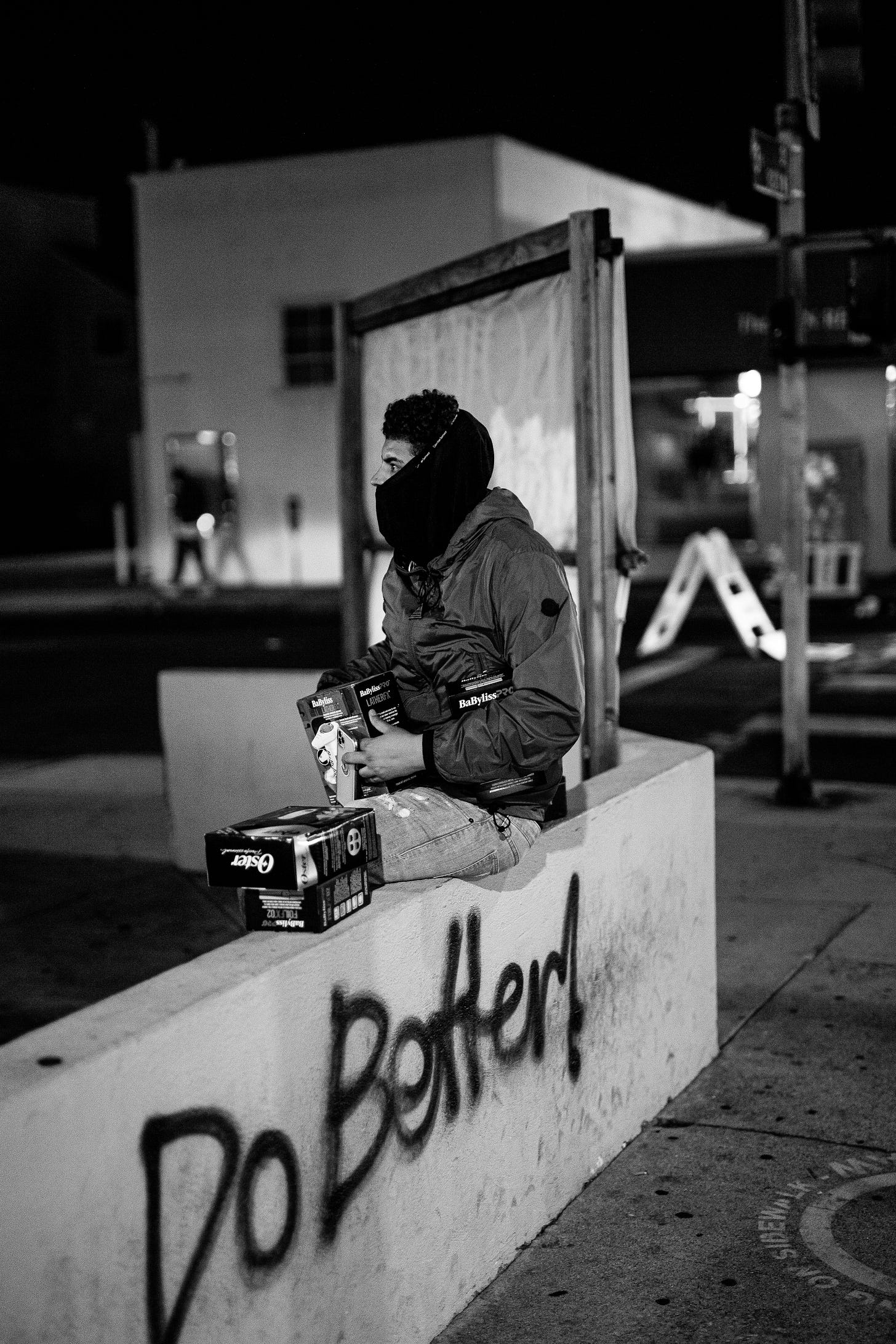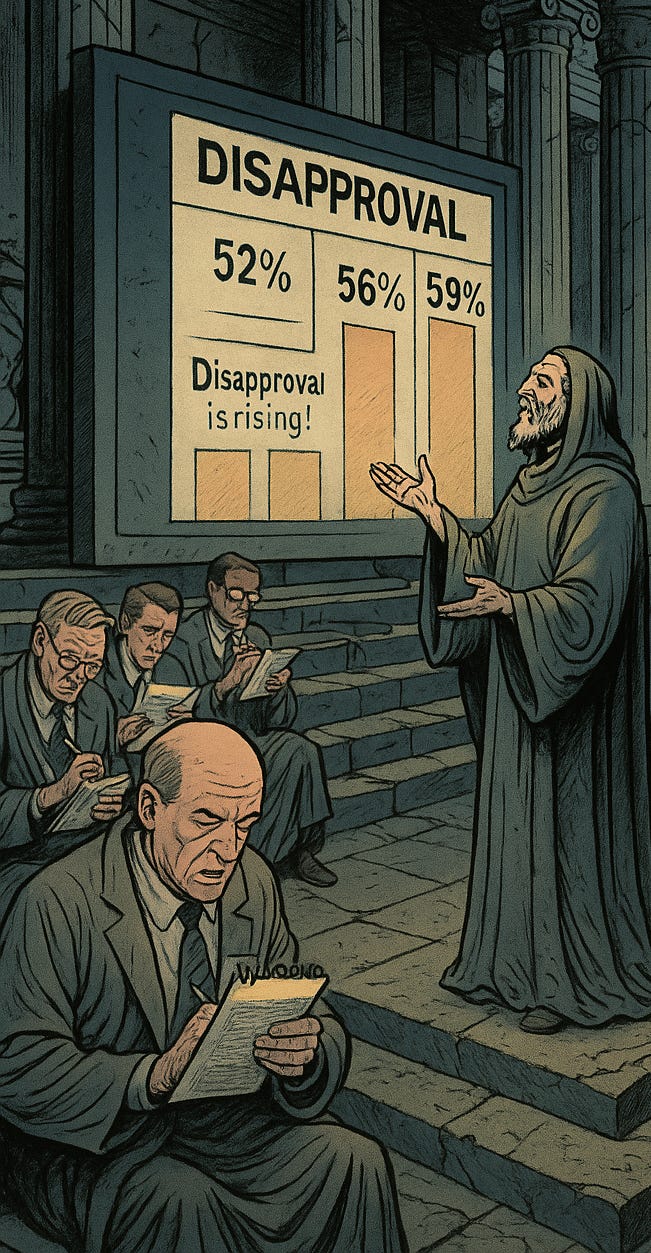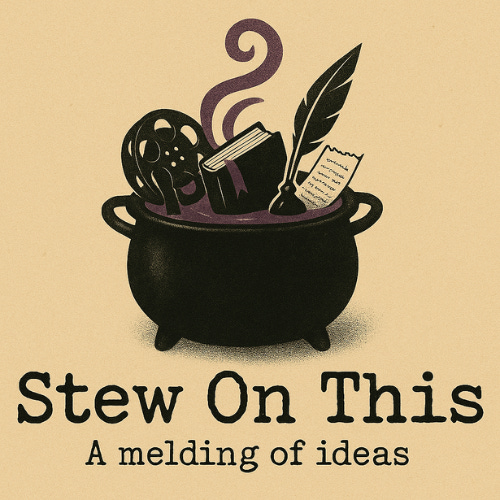The Sample Is Not the Nation
Political storytelling isn’t broken. It’s doing exactly what it was trained to do: ignore collapse until it becomes content.

As always, before an election, a bevy of polls is released, prompting the chattering class to discuss disapproval numbers and percentages on specific policies and breaking news events. But that is juxtaposed by stories of militarized streets and growing food lines. It is more common today than it was yesterday, although the buildup to this moment can be traced back over the last several decades.
We’re watching American institutions fray in real time, but our pundits keep measuring smoke signals from a system that no longer works. Polling can’t tell you anything about regimes that don’t need consent, just control.
Now, polling, let’s be fair, still has a place. It’s one of the only scalable tools we have to aggregate public sentiment across a nation built on fragmented media bubbles and geographic estrangement. There have even been methodological advancements in the field in recent years, especially in efforts to include historically underrepresented voices.
But our cultural dependence on polling, especially within legacy media and political consulting circles, has calcified into a kind of superstition. When political operatives learn how to gamify poll questions, seed favorable narratives, or flood panels with strategic messaging, the product isn’t “public opinion” so much as a feedback loop with corporate sponsorship. In this moment, the obsession with approval ratings feels increasingly disconnected from the energy on the ground, where the administration seems to project power, not panic, and policy moves forward despite dismal feedback from those polled. We are living through a cycle where pandemics and post-insurrection spectacles don’t produce political vulnerability, but forge teflon mythology.
Yet somehow, entire narratives still hinge on the latest margin-of-error guess.
I couldn’t help but think of Daniel Hallin, a media scholar who chronicled how political journalism morphed from substance to spectacle, as I read the NBC and Washington Post-ABC poll results. Each article dutifully documented how unpopular the current administration is, how voters disapprove of various policies, and how Democrats have a polling edge. Then, with almost perfect cognitive dissonance, pundits position this polling as proof that a regime is faltering. It’s a strange faith ritual: the more ungovernable things get, the more tightly they cling to the idea that 59% disapproval means the emperor has no clothes.
Spoiler: they’re still ruling.
But that doesn’t seem to be the energy the administration is giving off, nor is there much credibility left in the disapproval rating as a meaningful metric after the sequence of events we’ve been living through. Think about how events that once seemed unthinkable, from pandemic denial and January 6 to a bulldozed East Wing without due process, are now calcifying into precedents, not breaches. It’s almost as if the chattering class is frozen in carbonite by Jabba the Hutt, and the evidence is their continued push of hopium through the polling-industrial complex instead of confronting the structural collapse of democratic assumptions. It’s not a malfunction. It’s a feature.
This past week, one could see the full absurdity of this split-screen reality. On one side: headlines trumpeting polling gains and optimism that maybe, just maybe, a 1990s-style blue wave is coming. On the other hand, Chicago’s streets are unraveling under the weight of camo-clad Border Patrol agents conducting what many are calling extrajudicial immigration sweeps. Depends who you ask, of course. Ask the Supreme Court, and they might shrug. Ask the governor of Illinois and you’ll get a very different answer.
Then there’s the USDA being legally compelled to resume partial SNAP payments while the federal government insists it’s still figuring out the “process,” leaving 42 million Americans, including children and the elderly, without food assistance. Private institutions, churches, and overextended food banks have stepped in, while officials issue statements about clarity and patience. These aren’t one-off crises. They are the pattern. Chicago and SNAP are not aberrations. They are the American present.
In Hallin’s Sound Bite Democracy, written over 30 years ago, he traces how news shifted from the relatively substantive political segments of the 1960s to the tightly packaged media spectacles of the late 1980s and beyond. Back in Nixon’s day, a candidate might talk uninterrupted for 40 or 60 seconds, even if he was reminiscing about his Aunt Olive. By the late ‘80s, the average political soundbite on the evening news was down to less than 10 seconds. And that was before TikTok.
In that ecosystem, journalists became not just observers but “handlers” of meaning. Politics wasn’t just covered, it was packaged. Hallin saw that this shift turned political news into a kind of proto-reality TV, with candidates distilled into one-liners and news segments edited like music videos. This bred a cynicism that infected the entire ecosystem: strategists, reporters, and yes, the audience. Trust eroded, and substance vanished. What remained was narrative warfare between insiders, built on polling trends, consultant chatter, and vibes.
And now we’re living with the final product.
An administration can have a 40% approval rating and still operate as if the Constitution is a suggestion. Not because it “broke the law” per se, but because it made the law irrelevant through spectacle and speed. It turns out that if you act fast enough and flood the zone with chaos, the pundits will still be trying to interpret your polling cross-tabs while your agents are throwing tear gas on the South Side.
This isn’t uniquely American, by the way.
The late Qing dynasty also tried to govern through Confucian examination rituals and administrative edicts, while foreign powers gutted its sovereignty, and the treasury fell apart. Soviet intellectuals wrote dense treatises on dialectical theory while the black-market economy and elite corruption hollowed out the state from within. During America’s Gilded Age, the country was awash in wealth and data. However, poverty, labor uprisings, and political violence were the true national mood. The metrics of legitimacy kept running long after legitimacy itself had expired.
Today’s polling discourse increasingly resembles a performance of accountability in a country where accountability mechanisms are non-functional. The pundit class performs a kind of intellectual kabuki, reciting familiar scripts of approval ratings, congressional maps, and suburban sentiment. At the same time, the regime treats disapproval as set dressing, not a threat.
So yes, 59% disapprove. And yes, Democrats might have a generic ballot advantage. But in a system where courts ignore state governments, military-style raids are livestreamed for propaganda, and food aid requires judicial emergency orders? Those numbers are trivia.
The platforms that Americans rely on for political storytelling are increasingly speaking a dead language. They’re measuring civic temperature with a thermometer from a different century. And that means they’re not just out of touch, they’re out of time.
Sobriety demands we stop pretending this is a debate. It’s a new kind of show. And some of us were never given a seat in the audience but instead were cast as props from the start.







Yes Stew, this:" We’re watching American institutions fray in real time, but our pundits keep measuring smoke signals from a system that no longer works. Polling can’t tell you anything about regimes that don’t need consent, just control"
It should be obvious to a blind person, that Trump is acting as if polls don't matter, because they don't. He behaves as though he is complying to lower court judgments, because it is cosplay.
We see before us Kabuki theater, and the actors are actually telling us who they are, and what they are going to do, all the while putting on a pretense that this still a nation run by the rule of law, yet are media, pundits, TV hosts, and even opposition political leaders make pretense that opinions matter, the vote counts, and this is just a glitch in the matrix, and all will be well so long as we follow the script.
You are correct, this regime doesn't care about public opinion, as it has control, control of the legal system, the police (both internal and external). It kills without consequence and thumbs its nose at the constitution and international law
And it doesn't have to care, because all that is needed to take control of a country and it's culture 17% and this regime has 40%